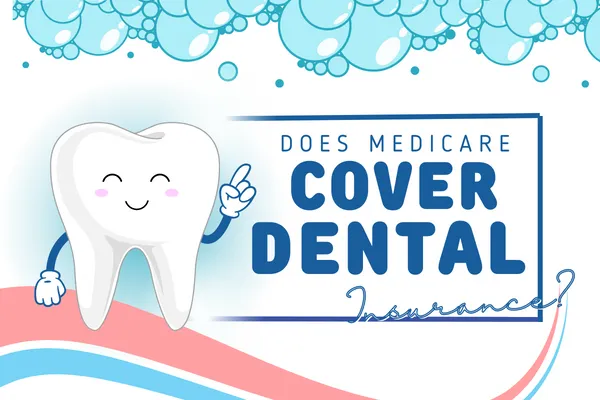
Call 336-415-3744
Unlocking the Medicare Mystery

Does Medicare Cover Dental?
Does Medicare Cover Dental Services? Exploring Comprehensive Dental Coverage Options
As we navigate the often complex field of healthcare coverage, one question consistently emerges among beneficiaries: Does Medicare cover dental services? Unraveling the mystery of Medicare dental coverage can be challenging, but we're here to provide a clear, comprehensive guide to help you understand your options better.
Understanding Medicare: A Brief Overview
Medicare, a federal health insurance program, primarily caters to individuals aged 65 and older, along with certain younger individuals with specific disabilities. The program encompasses various parts, each offering distinct services:

Medicare Part A (Hospital Insurance)
Medicare Part B (Medical Insurance)
Medicare Part C (Medicare Advantage Plans)
Medicare Part D (Prescription Drug Coverage)
Delving into Dental Coverage: Medicare's Stance
Original Medicare, constituted by Part A and Part B, provides coverage for a wide array of health services. However, routine dental care is not among these covered services.
Exceptions to the Rule: Dental Services Covered by Medicare
While Medicare does not typically cover routine dental care such as oral exams, cleanings, fillings, dentures, or extractions, there are specific circumstances where Medicare will pay for dental services. These exceptions primarily occur when the dental service is integral to a covered procedure or a part of comprehensive treatment.
Example 1: If you're hospitalized and require a comprehensive dental exam before a major surgical procedure, Medicare Part A will cover the dental exam costs.
Example 2: If you need an extraction before radiation treatment for neoplastic diseases, Medicare may cover the extraction costs.
It's crucial to understand that these are exceptions, not the norm, and the coverage is linked to the larger, covered treatment.
Dental Coverage with Medicare Advantage Plans: A Closer Look
Unlike Original Medicare, Medicare Part C, more commonly known as Medicare Advantage, may offer dental coverage. These plans are offered by private insurance companies approved by Medicare, and coverage varies by plan.
Understanding Your Medicare Advantage Plan
Not all Medicare Advantage Plans offer dental coverage, and for those that do, the extent of the coverage can vary significantly. Some plans might only cover basic preventive services such as cleanings and oral exams, while others might offer coverage for more comprehensive services like fillings, root canals, and dentures.
It's crucial to review your plan's specific details to understand the extent of your dental coverage, including any limitations or prerequisites.
Seeking Additional Dental Coverage: Stand-Alone Dental Plans
If your current Medicare coverage does not provide the dental services you need, or if you're seeking more comprehensive dental coverage, you might consider stand-alone dental plans. These plans are offered by private insurance companies and provide various levels of dental coverage.
Before choosing a stand-alone dental plan, it's crucial to understand the costs associated with the plan, including premiums, deductibles, and out-of-pocket maximums. Furthermore, ensure that the plan covers the dental services you need most frequently.
Wrapping Up: Navigating Medicare and Dental Coverage
Understanding the intricacies of Medicare's dental coverage can be a complex task. However, equipped with this knowledge, you can better assess your current coverage, identify any gaps, and find the best dental coverage for your needs. Whether through the limited exceptions of Original Medicare, the potential additional coverage offered by Medicare Advantage plans, or the tailored dental care from stand-alone dental plans, there are paths available to ensure your dental health is well looked after.
Remember, oral health is integral to overall well-being. Hence, finding comprehensive dental coverage to suit your needs can play a crucial role in your ongoing health and quality of life.
